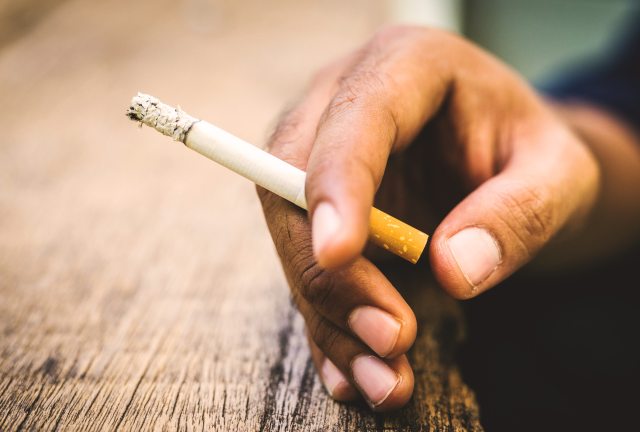Ready to quit nicotine use? Try these 4 ways to break the habit
| Wellness | Healthy You

More options than ever can help you give up smoking, chew, e-cigarettes and vape pens. Here are a few to try.
You know nicotine use is bad for your health. You've probably thought about quitting more than once. Maybe you've even tried before.
But there are now more tools than ever to help you quit, says Patti Walton, a pharmacist at PeaceHealth in Longview, Washington, who is certified in tobacco treatment.
When you're ready, your healthcare team can help you overcome roadblocks that might have stopped you in the past.
4 proven ways to quit nicotine
Research shows that smoking can harm almost every organ in your body. Here are four science-backed methods that can help you overcome nicotine addiction:
1. Prescription medications. Two main prescription medicines can reduce cravings and withdrawal symptoms:
- Bupropion (Wellbutrin, Zyban) changes the chemistry in your brain to reduce nicotine cravings.
- Varenicline (Chantix) blocks nicotine receptors in your brain, making smoking less satisfying.
"Based on the chemistry of our brains and how addiction works, medications that target specific receptors or areas in the brain are going to be most effective. But I have seen many patients quit in many different ways," Walton says.
2. Nicotine replacement therapy. These products give your body small amounts of nicotine without the harmful chemicals in tobacco smoke. Options include patches, gum, lozenges, inhalers and nasal sprays. Many are available over the counter.
3. Counseling and support. Talking with a trained counselor can help you develop strategies to manage cravings and avoid triggers. Research shows that combining counseling with medication gives you the best chance of success.
4. Alternative approaches. Some people find success with methods like hypnotherapy, acupuncture or mindfulness. These approaches are often most effective when combined with other treatments.
The secret to success
As part of Walton’s training to become a pharmacist, she worked in a clinic that served people with lower incomes. “I saw the toll that smoking and tobacco abuse took on patients and their families — the financial strain, cancer, COPD and asthma in kids and pets,” she recalls. “It was heartbreaking.”
Years later, she’s helped many people kick the habit. At the end of the day, she says, it comes down to motivation. "If the patient is ready to quit, it really doesn't matter how they do it, they will be successful."
For example, Walton remembers working with a single mom who had smoked for 15 years. She was already living with asthma and diabetes. Then chest pain sent her to the emergency room with early signs of clogged arteries. It was a wake-up call: She wanted to get healthy so she could be there for her kids.
Together, she and Walton chose a medication that her insurance covered. By day ten, she was able to quit.
More than two years later, she still hadn’t smoked, and her diabetes was well-managed. She'd been able to stop using an inhaler for her asthma, and she hadn’t been back to the ER.
Think about your reasons for quitting. Maybe you want to be around for your children or grandchildren. Perhaps you want to be able to breathe easier; to save the money you’d otherwise spend on cigarettes; or to protect your family from secondhand smoke.
"Quitting might be the hardest thing you do, but you will gain so much," Walton says.
Take the first step
Think you’re ready to quit? Talk with your doctor or healthcare team. They can help you create a plan that works for your lifestyle and goals.
It may help to know that most insurance plans cover tobacco cessation services at little or no cost to you. If you’re not sure what your benefits cover, reach out to your health plan to find out.
Walton also recommends calling 1-800-QUIT-NOW (1-800-784-8669). This free service connects you to the quit line in your home state, so you can find resources near you.
Patti Haywood Walton PHARM
Patti Haywood Walton PHARMD practices Pharmacology in Longview.






